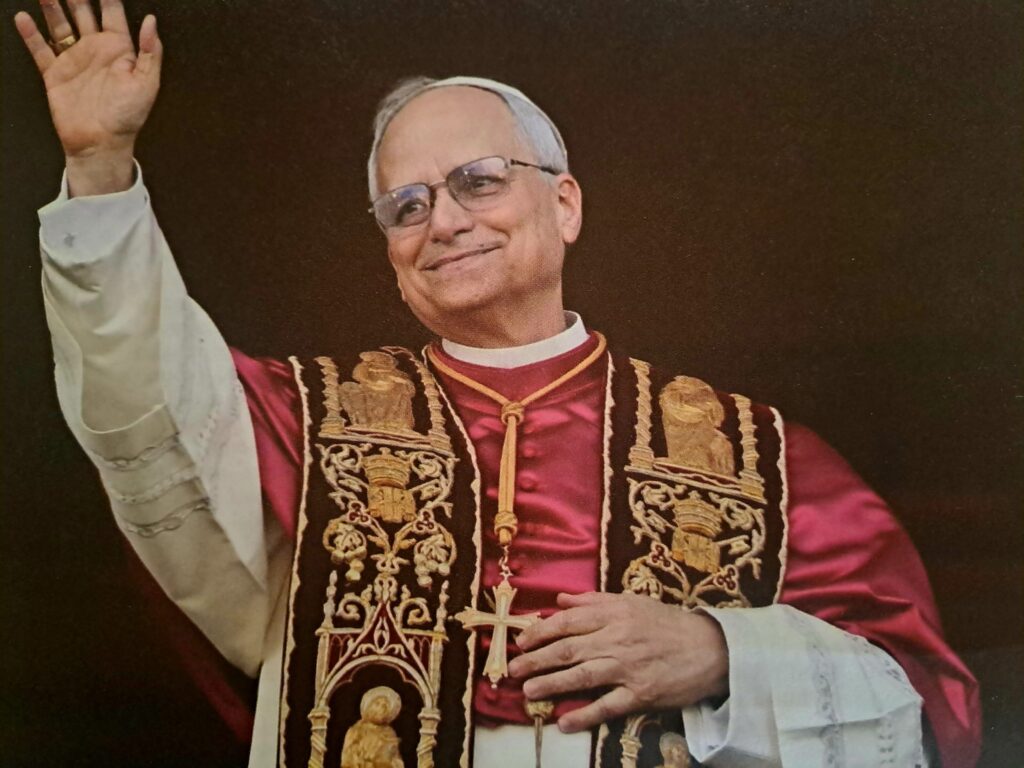It was a critical moment in the Synod this past October. The topic at hand? The authority of the bishop in a Synodal Church. Some members of the hierarchy expressed concern that the invitation of inclusive participation in the processes of decision making would dilute the formal authority of the bishops, and potentially lead to confusion and disunity.

But at that moment, the then Cardinal Robert Prevost made a very powerful statement which he made available for me to share:
“Allow me to quote from St. Augustine: ‘In those of us who have been selected as bishops, two things need to be differentiated: the fact that we are Christians, and the fact that we have been placed in leadership with others. We are Christians for our own sake. We are leaders of others for their sake. Many people will be saved without ever being responsible for others, and their journey is easier because they carry less of a burden. We bishops as individuals will be judged on our Christianity. But, because we have been put in charge of others, we will be judged also on the quality of our stewardship over those we led. People whom God puts in charge of others must not use their authority for their own advantage, but for the good of those they lead. A bishop who just enjoys being the boss and seeks his own honor and looks to his own convenience is feeding himself, not the sheep.’ (St. Augustine, sermon 46, 2).”
He went on to say that this instruction about leadership refers to everyone who has been given responsibility, including parents for their children, teachers for their students, etc. Not only is the one in authority called to serve, but to do so with and for others; not alone, and not in a unilateral, or one way, top down manner that does not include consultation and the interests of everyone affected by the decision. Further, Cardinal Prevost quoted the code of Canon Law, indicating that the structures and policies of the Church already make it not only possible, but essential, that bishops act in a co-responsible manner with the rest of the People of God within their diocese.
As we celebrate the action of God through the Holy Spirit in the election of Cardinal Robert Prevost as Pope Leo XIV, we celebrate the selection of a leader devoted to the humble and generous service of his flock, to following the example of the Good Shepherd himself. “My sheep hear my voice, and they follow me.” —This was so apparent as the former bishop of Chiclayo, Peru broke from speaking Italian and switched to Spanish in order to address the people of his diocese with affection and gratitude, and they in turn, responded with such joy and celebration.
You and I know that this moment of history is filled with so much uncertainty and that many of us feel as though we are on the brink, on the edge of the turning of the age. Pope Francis felt this acutely. While acknowledging natural anxieties in the face of the unknown, he encouraged us to embrace this uncertainty as a time of positive potentiality. He invited us to see this moment as a time when the Holy Spirit is moving us to conversion away from our various “isms” and ideologies to instead encounter each other with open minds, with listening hearts, and the willingness to labor together for the healing and repair of our societies, our systems, and of the planet. He modeled for us how to live with courage, discernment, and tenderness for one another…
In his brief opening address, and by the selection of Leo as his name, our new Pope signals his belief in the path opened up by Pope Francis, his confidence in Synodality to bring us together, and his commitment to the social teachings of the Church for the service and betterment of the world. Let us bring our prayers together for Pope Leo, for the burden of responsibility and stewardship that he carries, and for his shepherding of the Church at this precarious moment of her long history. Let us not leave him to undertake this burden alone, but join him in this great work for the healing and repair of the world, for peace, and for the sharing of Christ’s good news of love and mercy. We are, after all, on this road together.
Fraternally,




